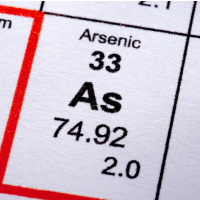Is the Price of Exide's Vernon Battery Plant Pollution Just $7.7 Million?

Exide Technologies has been battling state regulators and residents living near its battery recycling plant in the densely populated Los Angeles County city of Vernon since at least 2007. The company has been accused of poisoning more than 100,000 people, been temporarily shut down, been forced to test the surrounding area for arsenic and lead contaminants and compelled to make repairs to its equipment.
On Monday, Exide reached an agreement with the state to pay $7.7 million over two years for upgrades to its plant and blood tests for its neighbors, and in exchange the Department of Toxic Substances Control (DTSC) will stop trying to shut the place down.
On Tuesday, critics of Exide and state regulators, including Assembly Speaker John A. Pérez and two state senators, complained bitterly about how the residents were being treated. According to the Los Angeles Times, lawmakers clapped along while the audience rhythmically chanted, “Shut it down” at a community meeting attended by DTSC Director Debbie Raphael and other regulators.
The Exide plant, like many polluting facilities in the state, can’t have its permit to operate revoked because it doesn’t have one. The plant has operated under “interim status” for decades under a permitting system that the DTSC admits (pdf) is regarded with “significant dissatisfaction.” It is one of the complaints heard from those who think the agency favors corporate interests over the public welfare.
Residents asked if Exide, one of the world’s largest battery recyclers, should have spent that money years ago when problems were first detected, and wondered if it is nearly enough. The deal is a bit more complicated now because Exide filed for bankruptcy in the spring and any agreement has to be approved by a bankruptcy judge. The judge is not expected to hear the case before November 5.
Exide made some repairs to its plant after the South Coast Air Quality Management District (AQMD) ordered the company to cut its lead emissions in 2008, following years of complaints from neighbors. Lead remained the focus of complaints about the company until this spring when a trail of arsenic contamination, first detected in 2010, led back to the Exide plant two years later.
Exposure to lead causes permanent brain damage and about half a million American children have too much of it in their system. Lead lowers IQs, causes learning disabilities and has been linked to criminal behavior. It has also been linked to stunted growth, seizures and a range of maladies. Needless to say, arsenic isn’t any better. It is notoriously poisonous and has been linked to cancer, heart disease, stroke, respiratory diseases and diabetes.
The DTSC ordered Exide to temporarily suspend operations in the spring after the AQMD told the company it had to reduce its arsenic emissions and begin an outreach program to explain the plant’s problems to neighbors. The AQMD said the plant posed an elevated cancer risk to 110,000 nearby residents.
Exide appealed the decision to the Los Angeles County Superior Court and received a temporary reprieve pending a hearing. The AQMD required Exide to reduce its smelting plant production by 15%, which it did in September. But new testing weeks later found it still in violation of pollution limits.
The plant, which has been in operation since 1922, currently melts down up to 40,000 batteries a day. The state’s Toxic Hot Spots program requires sources of pollution to notify the public if the calculated health risk to humans is 10 in 1 million or more. If the risk is 25 in 1 million or more, the facility has three years to come up with a solution. Exide’s calculated risk is 156 in 1 million.
The money from Exide will be used to install new air filters and piping for a storm water system, and for tests for lead and arsenic in soil and dust.
A statement from Exide’s CEO Robert M. Caruso sought to reassure everyone that the situation was under control and the neighborhood’s welfare was the company’s chief concern. “We continue to strive to make our Vernon plant a premiere recycling facility and consider the health and safety of the community and our workforce a top priority,” he wrote.
–Ken Broder
To Learn More:
Crowd Voices Anger over Vernon Battery Recycler (by Jessica Garrison, Los Angeles Times)
California Reaches Deal with Vernon Battery Recycler (by Jessica Garrison and Kim Christensen, Los Angeles Times)
Vernon Battery Recycling Plant Maybe Poisoned "Hundreds of Thousands" Of Their Neighbors (by James Brasuell, LA Curbed)
DTSC Announces Additional Requirements on Exide Plan (News release) (pdf)
Court Rebuffs State, Lets Battery Recycler Stay Open and Test for Neighborhood Pollutants (by Ken Broder, AllGov California)
- Top Stories
- Controversies
- Where is the Money Going?
- California and the Nation
- Appointments and Resignations
- Unusual News
- Latest News
- California Forbids U.S. Immigration Agents from Pretending to be Police
- California Lawmakers Urged to Strip “Self-Dealing” Tax Board of Its Duties
- Big Oil’s Grip on California
- Santa Cruz Police See Homeland Security Betrayal in Use of Gang Roundup as Cover for Immigration Raid
- Oil Companies Face Deadline to Stop Polluting California Groundwater





